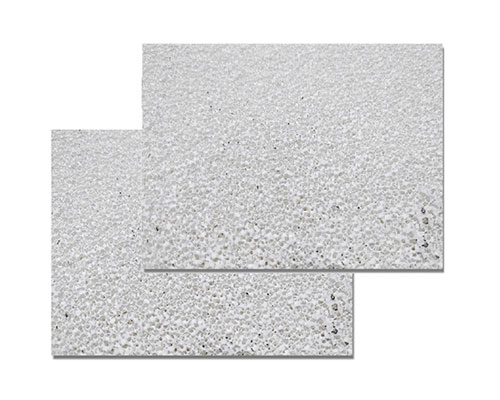For European aluminum plants, aluminum alloy ceramic filters for aluminum casting are cheap and stable in quality.
Swedish Aluminum said that China’s aluminum alloy ceramic filter for casting can provide a stable supply cycle.
Sweden Aluminum says that ceramic foam filters are very important for the purification of aluminum melt.
The so-called purification treatment is to take various measures to reduce unnecessary gases and solid substances in the aluminum melt to the allowable range to ensure that the performance of the material meets the standard or some special requirements.
To filter is to filter with a filter.
When the alloy solution flows through a ceramic foam filter with straight or three-dimensional meshes, it will filter out the inclusions in the melt with a particle size larger than the mesh, and filter out the inclusions with a particle size smaller than the particle size. The grid size is filtered. The inner surface of the channel is adsorbed.
When the alloy solution flows through the filter screen and the internal channels, the flow rate is reduced and divided into countless small liquid streams. These small liquid flows tend to flow laminar, which increases the chance and speed of floating.

With the continuous accumulation and precipitation of the adsorbent, the screen size of the filter becomes smaller, and the particle size of the inclusions that can be adsorbed also becomes smaller, thereby improving the filtering effect.
Currently, commonly used filters include glass fiber filters, ceramic plates, ceramic tubes and foam ceramic filters.
Ceramic filters for aluminum casting is a commonly used filter tool in aluminum and non-ferrous alloy smelting industry. The ceramic filter for casting is white and made of high-purity alumina (Al2O3). The filter provides deep bed filtration to remove a large amount of impurities in the aluminum melt and works at a dump temperature of up to 2000°F, while the mesh filter provides thorough and deep filtration to remove the molten aluminum. Aluminum or non-impurity. aluminum. The black alloy flows. It has excellent resistance to high thermal shock, while maintaining effective removal of impurities through continuous and thorough filtration.

